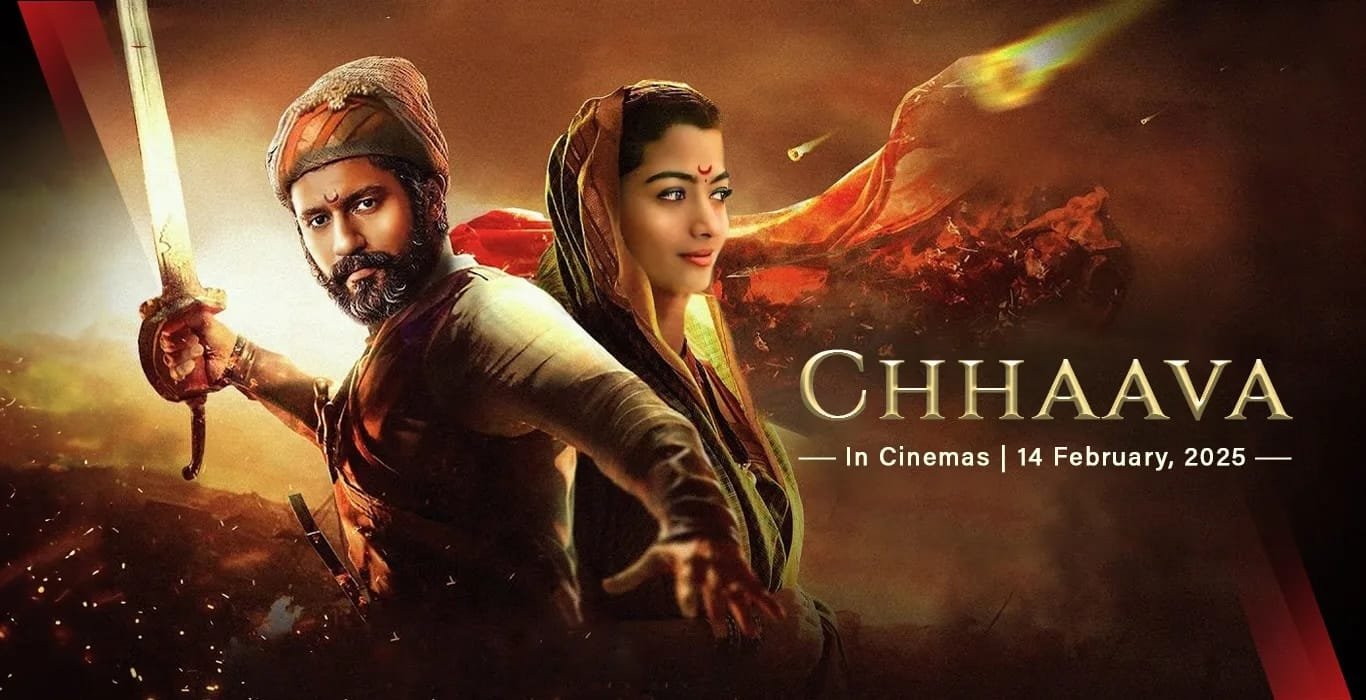“Chhaava,” a cinematic portrayal of the legendary Maratha warrior king Chhatrapati Sambhaji Maharaj, arrives amidst a landscape where historical narratives are often wielded as tools of contemporary discourse. This film, directed by Laxman Utekar, aims to bring to life the saga of a figure whose courage and sacrifice have been etched into the annals of Indian history. However, in an era where historical films are frequently scrutinized for their political undertones, “Chhaava” faces the challenge of balancing historical accuracy with cinematic storytelling. Does it succeed in delivering a compelling narrative, or does it succumb to the pressures of modern-day interpretations?

Direction
Laxman Utekar handles the ambitious historical project “Chhaava” with evident sincerity. While the first half of the film feels somewhat disjointed and rushed, the second half compensates with its brisk pace and engaging action sequences. Utekar successfully delivers a grand spectacle, primarily driven by powerful performances and compelling visual storytelling, though the narrative’s constant shifts between timelines can be confusing.

Screenplay
The screenplay, based on Shivaji Sawant’s novel, aims to highlight the legacy of Sambhaji Maharaj, son of Chhatrapati Shivaji Maharaj. However, the film’s fear of offending any group leads to a lack of creative interpretation and genuine emotion. The dialogue often feels like recited bullet points, and the narrative is laden with oversimplified portrayals of heroes and villains. The constant emphasis on “Hind Swaraj” and the demonization of the Mughals, while reflecting contemporary cultural nationalist sentiments, renders the film predictable. The war sequences, though visually grand, are often repetitive and lack a nuanced approach.

Acting
Vicky Kaushal delivers a powerful and earnest performance as Sambhaji Maharaj, showcasing the character’s valor, vulnerability, and emotional depth. His portrayal of the Maratha king is intense and memorable, solidifying his position as a leading actor. Akshaye Khanna, as Aurangzeb, provides a chilling presence, conveying the emperor’s menace and scheming nature through subtle expressions. However, his commitment to portraying Aurangzeb as a pure villain sometimes overshadows the performance’s depth. Rashmika Mandanna, as Maharani Yesubai, attempts to embody the queen’s strength and resilience, but her character’s abrupt arc limits her impact. Diana Penty’s portrayal of Aurangzeb’s daughter is largely inert.

Other Technical Aspects
The cinematography effectively captures the grandeur of the Maratha and Mughal empires, and the battle sequences are visually impressive. However, the excessive blood and gore, particularly in the climax, become gratuitous. A.R. Rahman’s background score is refreshing but often overpowering, drowning out dialogue. The use of modern musical elements in a 17th-century setting feels jarring and misplaced. The VFX, while decent, occasionally appears exaggerated, such as the overacting lion. The editing is erratic, with abrupt cuts and missing shots, making the narrative feel disjointed.

Overall Note
“Chhaava” is a visually grand and action-packed historical drama driven by strong performances, particularly by Vicky Kaushal and Akshaye Khanna. However, the film suffers from a lack of narrative depth, an overreliance on simplistic hero-villain portrayals, and a fear of creative interpretation. The constant shifts in timelines and the excessive use of violence detract from the overall experience. While the film aims to celebrate the bravery of Sambhaji Maharaj and the Marathas, it ultimately falls short of delivering a nuanced and compelling historical narrative. The film’s attempt to cater to contemporary cultural sentiments results in a predictable and often repetitive cinematic experience. Despite its technical prowess and acting talent, “Chhaava” ultimately feels like a missed opportunity to create a truly impactful historical epic.
